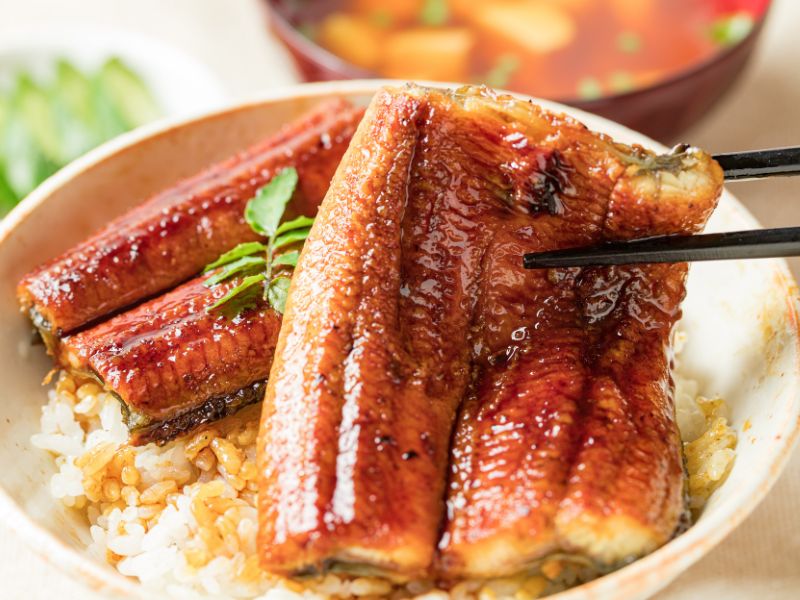
Forsea Foods is making significant strides in addressing the decline of wild eel populations by unveiling its first prototype of cell-cultivated freshwater eel. The company, founded in 2021 with a mission to combat the overfishing crisis, has successfully replicated the traditional Japanese unagi eel (Anguilla japonica) with a texture and flavour mirroring real eel.
In collaboration with executive chef Katsumi Kusumoto, the startup has developed two popular traditional Japanese dishes—unagi kabayaki (marinated grilled eel over rice) and unagi nigiri. Chef Kusumoto, known for his vegan restaurant SAIDO in Tokyo, adds culinary expertise to refine the product’s texture and flavour, aligning it with the traditional unagi indulgence while promoting eco-consciousness.
Forsea’s working proof-of-concept embodies the sensory attributes of real eel meat, and the company is now gearing up for scale-up. The startup employs a novel technology for cell-cultivating eel cuts, and its collaboration with Chef Kusumoto ensures a high-quality product. Forsea received recognition by winning the Startup Pitch Hour Prize at the Asia-Pacific Agri-Food Innovation Summit in Singapore.
Roee Nir, CEO and co-founder of Forsea, emphasizes the company’s commitment to delivering delicious cultured seafood products while contributing to ocean conservation. Overfishing of eels has led to their endangered status, and the popularity of eel meat globally poses challenges for suppliers, resulting in illegal trade, high prices, and supply bottlenecks.
Forsea’s cell-cultivated eel offers a sustainable and nutritious alternative free from antibiotics, hormones, and ocean pollutants. The company’s proprietary method involves the application of organoid technology, crafting 3D microtissues composed of fat and muscle. These tissues spontaneously differentiate into edible cells, simulating the natural cell formation process. The innovative approach simplifies production, enhances scalability, and addresses supply bottlenecks by efficiently and cost-effectively producing cultivated meat.
Forsea anticipates launching its inaugural product for commercial sale in 2025 and is actively seeking strategic partners in Japan, the largest consumer of freshwater eel, as well as across Asia. Expansion into the EU and the US markets is also on the company’s agenda.
To accelerate its progress, Forsea has expanded its team, creating new engineering and food applications departments. Mayu Sugisaki has been appointed as the business development manager in Japan to solidify the company’s presence in the Asian food market.
Founded by biotech engineer Roee Nir, MBA; Moria Shimoni, PhD; Iftach Nachman, PhD; and Yaniv Elkouby, PhD, Forsea has received support from the Israeli Innovation Authority (IIA) and The Kitchen Hub. The startup has garnered seed backing from Target Global, PeakBridge VC, Zora Ventures, FoodHack, and M&H Ventures. Forsea’s innovative organoid approach to cultivating fish tissue involves creating an ideal environment for fish cells to spontaneously form their natural composition of native fat and muscle, resulting in a three-dimensional tissue structure mimicking nature.
All images in this article are courtesy of Forsea Foods.







